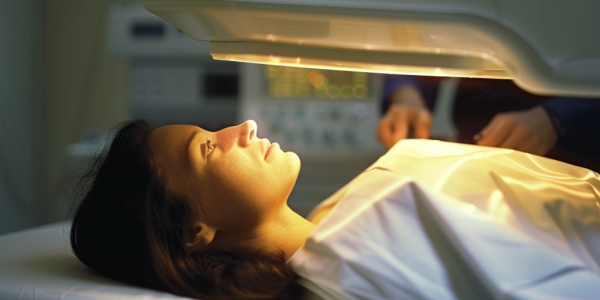Ultrasound Waves: Revolutionizing Brain Disorder Treatment
Discover how ultrasound waves are revolutionizing the treatment of brain disorders by targeting specific regions with precision, offering a non-invasive and effective alternative to traditional methods. Learn how transcranial ultrasound stimulation (TUS) is being used to treat conditions like depression, anxiety, and addiction, providing hope for those struggling with psychiatric disorders.
Potential Breakthrough in Parkinson’s Disease Treatment
Recent research reveals the potential of pharmacological inhibition of α-synuclein aggregation within liquid condensates as a breakthrough in Parkinson’s disease treatment. The study explores the role of α-synuclein aggregation in Lewy bodies and the impact of small molecules, such as claramine, in inhibiting this process. This discovery offers hope for innovative treatments that could combat protein aggregation in neurodegenerative disorders and potentially reverse the progression of Parkinson’s disease.
Eye Tests Show Promise in Predicting Parkinson’s Disease Progression
A recent study has found that measuring the thickness of the retina through eye tests can help predict the progression of Parkinson’s disease. By identifying retinal degeneration early, routine eye exams could become a non-invasive tool for predicting the severity of symptoms, leading to more targeted treatment strategies and better outcomes for patients.
Ryan Reynolds Pays Tribute to Michael J. Fox’s Influence and Legacy
Ryan Reynolds pays tribute to his longtime friend Michael J. Fox, highlighting Fox’s resilience, talents, and commitment to Parkinson’s research. Reynolds reflects on their 17-year bond and Fox’s profound influence on multiple generations, emphasizing his compassion and ability to connect with people. Through their friendship, Reynolds has learned valuable lessons in empathy and resilience that he hopes to pass on to his daughter, underscoring Fox’s impact as a multifaceted individual whose legacy transcends boundaries and inspires millions worldwide.
Advancements in Parkinson’s Disease Treatment
Learn about the latest breakthrough in Parkinson’s disease treatment with Deep Brain Stimulation (DBS) as discussed by Medtronic Brain Modulation’s VP and General Manager, Amaza Reitmeier, and Navy veteran and DBS patient, Andrew ‘Andy’ Horn, on BMORE Lifestyle. Discover the transformative impact of DBS on the quality of life for patients and the potential to revolutionize the treatment of Parkinson’s disease.
Samba Drumming Class Helps Woman Manage Parkinson’s
Discover how samba drumming is helping 65-year-old grandmother Sara Dove manage Parkinson’s. Learn about the benefits of physical activity and the growing body of research supporting it as a recommended aspect of symptom management for Parkinson’s.
Groundbreaking Discovery in Parkinson’s Disease Treatment
Groundbreaking discovery in Parkinson’s disease treatment offers hope to patients. Stem cell repair therapy shows potential to revolutionize treatment and improve quality of life for those with Parkinson’s disease.
Promising Results in Slowing Parkinson’s Disease Progression
French researchers conduct a one-year study using a GLP-1 receptor agonist, a drug similar to Ozempic, showing promising results in slowing the progression of Parkinson’s disease. This development brings hope to the half a million Americans diagnosed with the illness and offers a glimmer of hope for individuals affected by Parkinson’s disease.
Link between Pesticides and Parkinson’s Disease
Revelations about the link between pesticides and Parkinson’s disease highlight the need for proactive measures to safeguard neurological well-being. New research funded by the Michael J. Fox Foundation has identified three additional pesticides associated with an increased risk of Parkinson’s disease, emphasizing the urgent need for collective action to address the impact of pesticide usage on human health.
Parkinson Association of Alberta Launches ‘Unshakeable’ Campaign for Parkinson Awareness Month
The Parkinson Association of Alberta (PAA) launches the ‘Unshakeable’ campaign to recognize the strength of Canadians living with Parkinson’s disease. With over 110,000 people in Canada affected, the campaign aims to raise awareness and celebrate the contributions of researchers, health professionals, and advocates. Special events like the Sit ‘n Stand Challenge will be held in Edmonton and Calgary to assess lower body strength, balance, and mobility for individuals with Parkinson’s disease.










